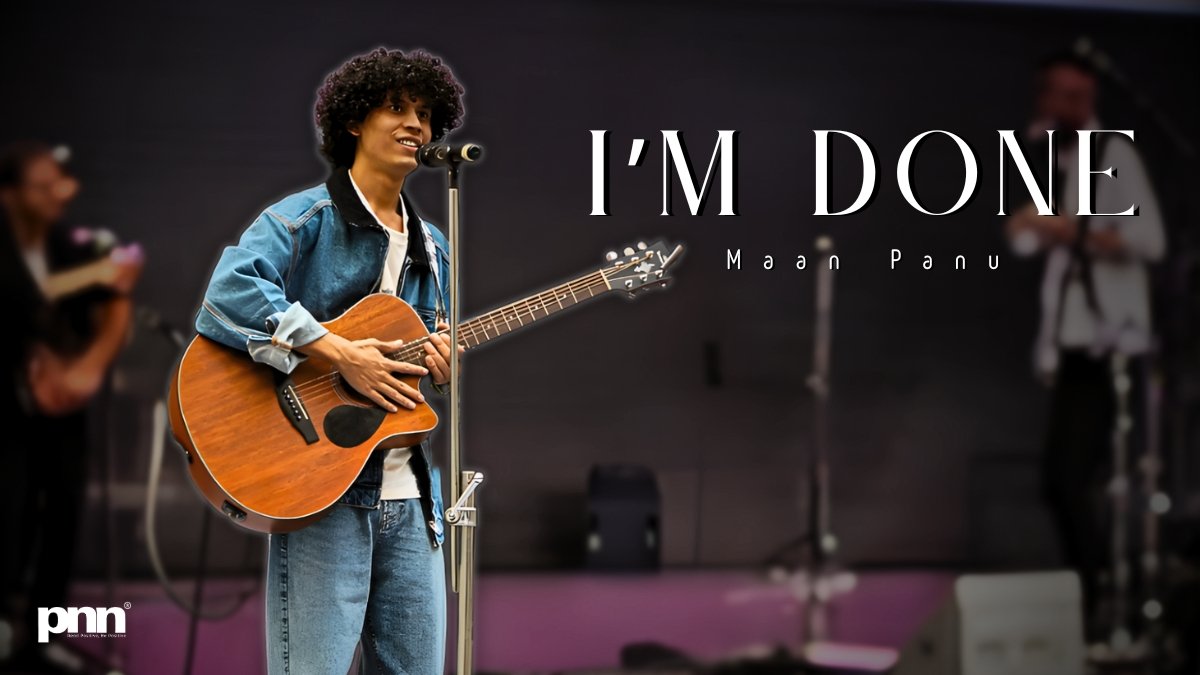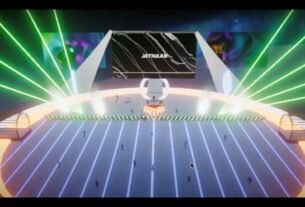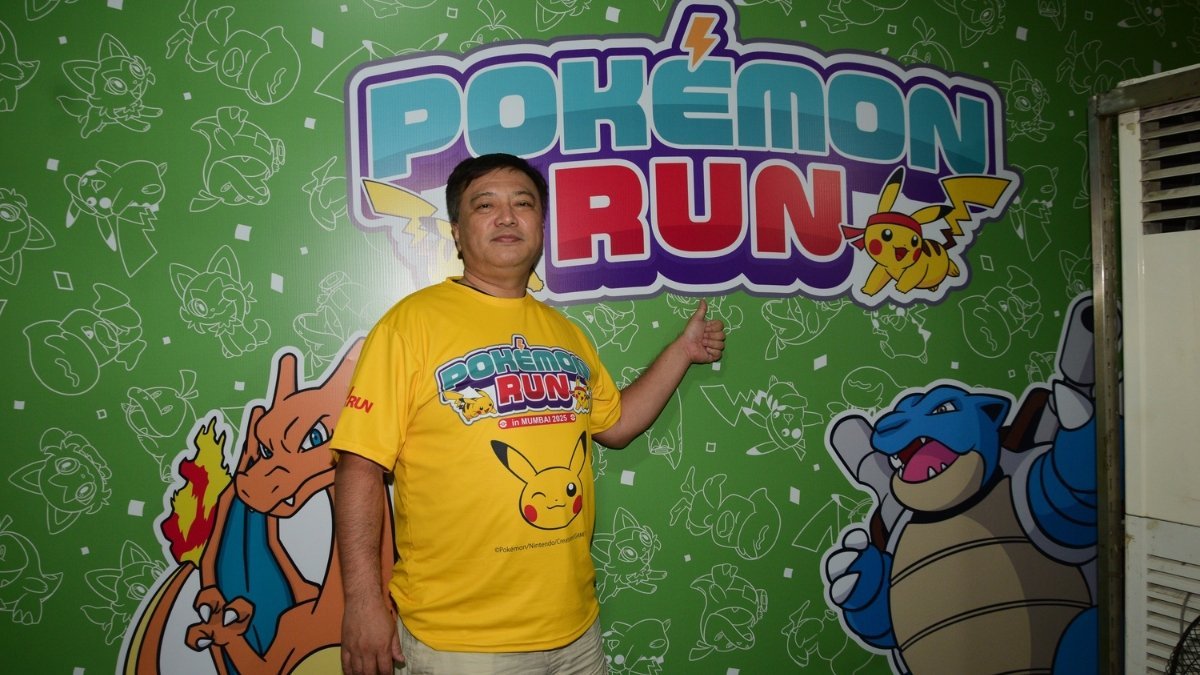Mumbai (Maharashtra) [India], November 8: Some songs don’t just play — they haunt. “I’m Done” by Maan Panu doesn’t arrive like a pop single. It drifts in like a ghost, carrying pieces of everyone who’s ever loved too hard and left too late. It’s not loud, nor vengeful. It’s the quiet devastation of someone who’s learned that closure is a myth and healing is just emotional taxidermy — you preserve the shape of love long after it’s dead.
Released in late 2025, I’m Done is less of a breakup song and more of a cultural checkpoint. It sounds like resignation disguised as self-awareness — a confession wrapped in rhythm—the kind of song you send to someone you’ll never text again.
And perhaps that’s why it’s spreading like wildfire across playlists, TikTok edits, and Instagram reels.
The Sound of Detachment
Maan Panu, a name quietly gaining gravitational pull in the indie-music stratosphere, isn’t your standard heartbreak poet. His previous works leaned toward the lo-fi and lyrical, but I’m Done stands apart. It’s raw, sparse, and sonically minimalist — the kind of soundscape that forces you to sit with your own silence.
Beneath the melodic melancholy, there’s a spine of deliberate restraint. No grand bridges, no lyrical theatrics. Just two words that hold a universe of finality. The beat? Steady, like someone’s pulse after acceptance.
If heartbreak anthems were storms, I’m Done would be the calm after. Except calmer doesn’t mean kinder. It means colder — and more honest.
The Psychology of a Wound Set to Music
It takes a certain kind of emotional maturity — or ruin — to write a song like this. Maan Panu’s lyricism reveals the mind of someone who has analysed pain until it became data. It’s heartbreak for the hyper-aware; therapy for those who no longer cry, they overthink.
Psychologists call it “post-empathic detachment” — when emotional fatigue dulls the edges of grief. Panu’s words mirror that condition with eerie precision. Each verse feels less like lamentation and more like clinical observation: a person watching their own heartbreak from a distance, clipboard in hand.
This isn’t sadness in its first form; it’s sadness after it’s aged into sarcasm.
The Internet Speaks Back
Social media hasn’t just listened — it’s echoed. Within days of release, #ImDone began trending on X (formerly Twitter).
“It’s not a breakup song. It’s an emotional detox,” one fan wrote.
“Every line sounds like something I wish I’d said instead of crying,” another posted, earning over 40,000 likes.
A third summed it up with chilling brevity: ‘This song doesn’t heal you. It validates that you might never heal.’
Even more fascinating? The rise of the “female version.” Across TikTok and YouTube Shorts, women are rewriting the lyrics to mirror their own narratives — transforming the song from confessional despair to poetic revenge. Some call it therapy through mimicry. Others call it delusional closure. Either way, it’s art doing its job — making people feel less alone in their madness.
The Data Behind the Drama
| Category | Details |
|---|---|
| Song Title | I’m Done |
| Artist | Maan Panu |
| Release Date | October 2025 |
| Genre | Indie Pop / Emotional Alt |
| Streaming Platforms | Spotify, YouTube, Apple Music |
| Spotify Streams (as of Nov 2025) | 6.7 million+ |
| YouTube Views | 3.9 million+ |
| Production Budget | Approx. ₹8–10 lakh (independent) |
| Music Video | Minimalist narrative, directed by the artist himself |
| Mood Tag | “Emotional Exhaustion in HD” |
| Fan Engagement | 75K+ playlist adds, 20K+ covers/remixes |
Who is Maan Panu, Anyway?
For those just discovering him, Maan Panu isn’t your algorithmic accident. The Punjab-based artist emerged from small indie circuits, writing lyrics in dim rooms and producing songs that feel uncomfortably intimate. His work sits in that liminal space between poetry and confession — where words aren’t meant to impress, but to unburden.
He once told an interviewer, “I don’t write songs to move on. I write them because I can’t.” That might as well be I’m Done’s thesis statement.
Behind his calm vocals lies a world-weary storyteller who’s dissected love so precisely, you’d think he was performing surgery on emotion itself.
Why “I’m Done” Resonates in 2025
In an era of hyper-digital emotionality — where every heartbreak gets live-streamed in 4K — I’m Done feels strangely human. There’s no aesthetic filter, no false optimism—just the brutal beauty of truth.
It hits a nerve for a generation fluent in emotional exhaustion. Gen Z and younger millennials — the ones who joke about trauma but secretly journal it — find solace here. The song says what many think but never articulate: sometimes, being “done” is the healthiest decision you can make.
Cultural critics call it the anthem of emotional burnout. Relationship therapists are already referencing it as an example of “music-based cognitive processing.” And Spotify’s algorithm? It’s feeding it to every night owl who searches “sad songs but peaceful.”
The Duality of Healing
But let’s not romanticize the ache entirely. There’s something disturbingly comforting about I’m Done. Its appeal lies in how it lets you linger in heartbreak without feeling pathetic. It’s emotional escapism disguised as introspection — catharsis that flatters your sadness.
This duality makes the track almost dangerous. It offers closure but keeps the wound open just enough to keep you listening. Like emotional caffeine — it wakes you up, but you never really rest.
Hope, or Something Like It
And yet, there’s a twisted kind of hope threaded through the song’s veins. Not the Pinterest kind — more the delusional whisper that says, “Maybe someday, someone will understand this version of me.”
That’s the spell of I’m Done. It doesn’t preach healing. It lets you romanticise survival. It doesn’t promise light at the end of the tunnel — it teaches you to decorate the darkness.
Maybe that’s why Maan Panu’s song feels less like music and more like a mirror. It reflects our collective fatigue, our quiet victories, and that stubborn flicker of delusion that keeps us all moving forward.
Because deep down, none of us are really “done.” We just say it beautifully.




